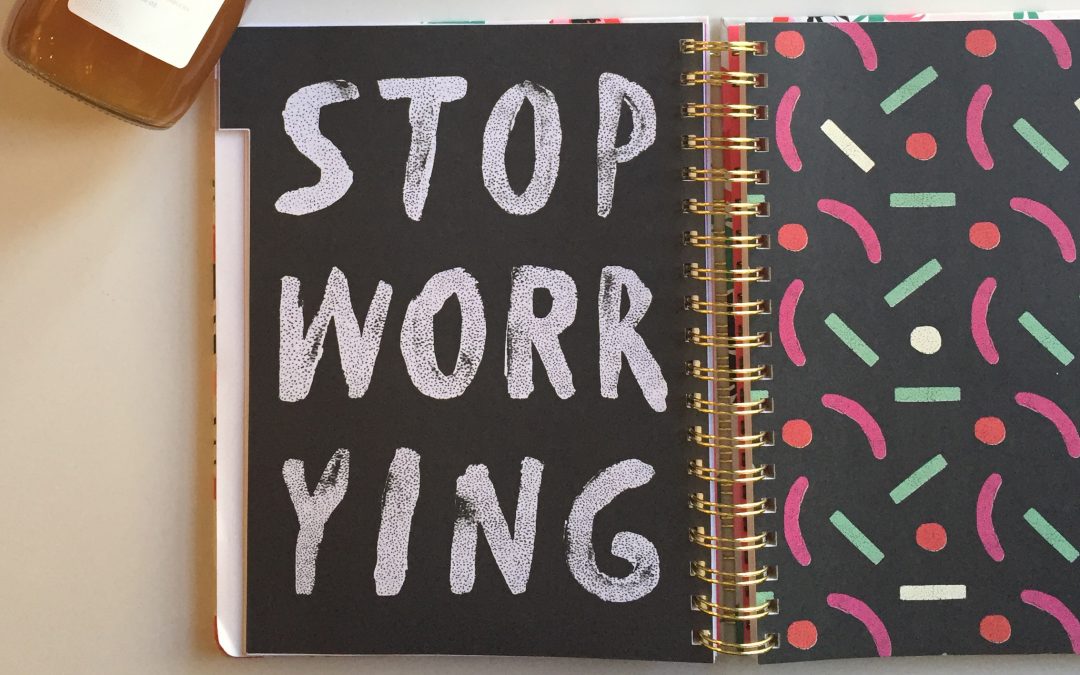
by Rachel Dukeman | Jul 11, 2017 | Action Planning, Design, Entrepreneur, Mindfulness
Your work space is important. It can dictate your productivity and vastly improve your mood. After dozens of projects with dozens of clients and three years in the same office, I’ve decided to actualize my daydreams and seek out the perfect office space.
I have been craving a comfortable, usable space that would inspire my creativity and embody my passions. I wanted a space to myself that is specifically designed for getting work done efficiently. I needed a space that was conducive to my entrepreneurial lifestyle. For me, that meant a window, a big desk, a “zen den,” and a small space for lunch meetings and quick brain breaks.
After searching for weeks, I have finally found the dream spot. I am relocating to Southwest Center City next week!
As you may know, I am passionate about balance and mindfulness. In packing up my old office and preparing my new one, I have discovered a few interesting lessons about usability and work habits that I hope will inspire you to think about your work space.
1. Clutter is NOT the answer

Clutter is always the paper note-taker’s biggest problem.
I am a big note taker, and I often lead strategic brainstorm sessions, board retreats, and focus groups. My notes provide me with every tool I need to propose smart solutions to strategic problems, but they also leave behind a war path of clutter.
Do you know these giant Post-Its? I usually bring two pads with me to each of those meetings. And as I started packing up my space, I realized that my office was hiding tons of old Post-Its, notes, journals, and legal pads full of ideas I had executed long ago.
When you finish with a scrap of paper, recycle the paper. You’ve already executed your best idea from that page of notes, so it is highly unlikely that you will use any leftover ideas. However, it is very likely that you will feel light and unencumbered when you walk into your open, de-cluttered office each morning.
2. Natural light can go a long way for fostering creativity

Imagine how creative you could be if you worked next to a floor-to-ceiling window every day…
My old office had a small window that was always a highlighted feature for me. I had all of my meetings next to the window, ate lunch near the window, and even decorated the window sill with plants to add extra green to the space.
When searching for a new space, I recognized that I was craving the natural light that a bigger window would provide. Just as going for a walk can help us relax our minds, natural light helps me clear my head and consider new perspectives on strategic problems. For me, natural light has been crucial to setting myself up to get into my most creative mindset.
3. The newest necessity for anyone working on cross-country teams: no-assembly-required professional backdrops for video calls

Sometimes all it takes is a clean workspace behind you, other times you need to get a little more creative.
I pride myself on my professionalism, but I also like to work in the heart of Philadelphia. I may not be able to control the sounds of the city that sometimes sneak their way onto my calls, but I can control the backdrop during a video conference. Considering this fine detail when upgrading your office space is an easy way to take your professionalism game up a notch.
When choosing a backdrop, be resourceful and intentional. Find something visually appealing but not distracting. Sometimes all you need is a clear floor space. For those of you decorating a wall, don’t underestimate the power of an old tapestry!
4. Recognizing your rhythms – zen dens, couches, and a whole lot of whiteboards

Namastay in the office …and still get a mindfulness break!
Everyone has a work rhythm, and paying attention to yours could be the trick for enabling yourself to access your best work.
For me, I am an early bird and a night owl. But that 3pm timeframe kills me. So for early mornings and late nights, I need a large desk with space to spread out and a few whiteboards for hammering out the details for my big ideas. Then for that one-hour block in the afternoon, I need my work space to include a place for short brain breaks: maybe a little space for yoga, a “zen den” for meditation, or a couch for recharging.
Figure out what you need, and build it up around you. Ultimately, your office space should should fit your work needs. In essence, it should set you up to become your most productive, most creative self.
I hope you’ll come visit my new space at 2216 South Street!

by Rachel Waxman | Apr 28, 2017 | Action Planning, Entrepreneur, Mindfulness, Strategy
A while ago a friend of mine said to me, “I’ve had a mentor for everything I’ve done in my life… So why would pregnancy be any different?” Now, months later, my friend has a baby…. And I can see that she was exactly right.
This is hardly a novel concept, there are plenty of articles about the importance of mentorship for advancing your career. What I’m learning is that mentors can be helpful for more than just career decisions. You could have a mentor to help when buying your first house, a mentor for leading better presentations, or a mentor to consult about a serious relationship. Here are some of the many ways mentors could be huge value adds in your life…
1. You Don’t Need to Reinvent the Wheel
Chances are someone has already successfully done the thing you’re trying to do. And those are the people you should consider when looking for a mentor. Go out, find them, and ask how they did it. If you take advice from those you admire and then attempt to follow in their footsteps, you’ll likely achieve the same successes.
2. Build Valuable Skill Sets Today
…Even if you won’t need it until later. Recently, I’ve been asking mentors for specific advice on specific things and I’ve found it really rewarding. In fact, I keep imagining what a strong professional I’ll be in five years if I keep practicing these skills now. And that includes the skills that aren’t directly related to my current job role!
3. Serious Validation
A mentor can validate your work in ways that your friends and your family cannot. They’ll be honest when you’re doing well, and they’ll be honest when you need to improve. Great mentors may even lead you on the path to improvement and show you specifically how to get there.
Finding a Mentor
Now that you’re sold on how a mentor could provide value in your professional and personal life, let’s talk about finding one.
First, find people who inspire you. Use whatever tools you’ve got! Subscribe to blog posts, podcasts, LinkedIn posts and Instagram feeds of people whose work you admire. I’m a big reader, so I queue up influential books I hope to read on the Good Reads app.
Next, see if anyone you know can make an introduction between you and one of these people you admire. Most likely, this method will get you a response.
However, if you can’t get an intro, send an email or LinkedIn message out of the blue. A genuine message about something specific is hard to ignore. Something like, “I am so impressed with how gracefully you spoke on that panel last week. Your words about failure really resonated with me, and have since inspired me to think more carefully about how to get my own business off the ground. I’d love to pick your brain and hear more of your story. Do you have any time to grab coffee next week?”
Lastly, always make the coffee/lunch ask! Worst case scenario: they don’t respond. Best case scenario: they’re flattered and excited to meet you. (Please note: being ignored really is the worst case scenario. No sane human would ever respond negatively to a kind message that compliments their work.) It doesn’t always work, but you have nothing to lose by trying!
by Rachel Waxman | Apr 7, 2017 | Action Planning, Entrepreneur, Nonprofit Management
If you’ve set goals and you’re serious about meeting them, then you’re inevitably going to have to give up other tasks in order to achieve your goals. If you’re spending your time on little tasks that aren’t integral to moving toward your overall goals, then you need to get comfortable with asking for help ASAP.
Let’s say you you are a marketing professional. Then you should not be reconciling your company’s financials. Sure, you could do the books. But if there are a finite number of hours in a week and you bring in the most money by doing marketing work for your company, then you should be spending all your time on the marketing work and asking (or paying) someone else to do the books.
I must admit, though, I am horrible asking for help. I usually get caught up in one of three Delegation Fears.
1. I don’t want to waste time explaining how I want a project done.
I try to remember something I once heard in a web design class, “Everyone has a scholarship to Google University.” And it’s true! If you delegate a task, the person you sent it to should be able to figure out how to accomplish the task, even without you holding their hand and leading the way.
2. I could do it better myself.
In situations like this, I’m reminded of another piece of advice I first heard from one of Hilary Rushford’s webinars, “Perfect is the enemy of good enough.” If you like things done a certain way, I urge you to challenge your instincts. Seeking perfection is unrealistic and will set you up for failure. Instead, recognize when your work is good enough. Get it done, and move on.
3. Oh, it’ll only take me five minutes.
But imagine how many of those five minute tasks you pile on each week. Tally up those five minutes each month, and consider how much time you’ve lost in an entire year. Identify your strengths and what you bring to the table that offers the largest ROI. Delegate any tasks that aren’t within your strengths or are wasting company time.
Of course, you should work hard. But you also need to work smart. Your time is finite, so if you’ve got a lot on your plate, make sure you’re doing those tasks that will get you the most bang for your buck. Those of us who work for startups, small businesses, or nonprofits, are constantly juggling multiple tasks and projects. But when it comes to achieving the goals you’ve set for yourself and your business, you need to make sure you’re spending your (limited) time doing what is most impactful for your organization.

by Rachel Dukeman | Oct 25, 2016 | Entrepreneur, Marketing, Policy, Thought Leaders
Who doesn’t love Wegman’s?
The fresh produce. The large beautifully designed aisles. Carefully chosen offerings that are sustainable, healthy and delicious. Each decision that goes into making Wegman’s such an inviting space to load up on crunchy apples and aged cheddar is guided by the institution’s core values. Which means everyone from the CEO to the person stocking the prepared foods knows exactly the environment that Wegman’s strives to create – and more importantly doesn’t waste time with choices that run counter to those values.
What are core values, exactly?
Well, first a definition: Core values are attributes shared by key stakeholders in the organization. They embody the brand identity, are used in the tone of the value proposition, and describe standards held by the organization. Most simply, core values are adjectives or common phrases that describe the personality traits of the people involved with the organization – from staff to investors to the clientele. You with me?
How can core values increase productivity and efficiency?
Core values increase productivity by aligning personalities and standards in a work place. This increases efficiency by focusing attention on work that will be most productive or eliminating the work that is not.
It’s simple and you’re probably already doing it. Let’s say you’re hiring. In the interview process, you’re most likely going to look for someone who complements your existing team. If you acknowledge what traits your staff share that make them work together so effectively and look for those traits in a new hire, you know you’ll build a stronger team.
You’re already doing this, right? Keep going.
So take it a step or two further by keeping those traits identifiable to all stakeholders. Likewise, not taking on a client or vendor who doesn’t share your core values helps you avoid situations that won’t be a good fit.
For example, one of the core values at R&R Creative is creativity. If someone approaches us with a project where there’s absolutely no room to propose new or innovative solutions then chances are we won’t be happy doing the project. Unhappy teammates make for an unhappy work environment which could result in our product suffering. The beauty here is that clearly stating our core values increases efficiency because they enable us to say no, and focus on what will end up being more productive in the long run.
What’s next?
Now, if you don’t know your core values or those of your organization I suggest you find out. If their answer is: what core values? Then maybe it’s time to make the case. Lucky you, R&R Creative knows just where to start. We can show you how to feature those values throughout your organization and marketing strategy to make sure you are attracting the right vendors, customers and team members, which means winning half the battle right from the start.
by Rachel Dukeman | Dec 1, 2014 | Entrepreneur, Marketing, Nonprofit Management, Policy
I, Rachel Dukeman, founded R&R Creative in 2007 during an economic downturn in an effort to broaden arts and cultural audiences through effective market research, audience engagement, and marketing services on a contract-by-contract basis. The pressure to maintain programmatic quality during the Recession forced nonprofits to hone their entrepreneurial skills and ability to manage projects according to priority, viability and strategic direction in a high velocity climate. More succinctly, they were forced to do more with less, being held accountable for the “success” of each program. In response, R&R Creative further developed tools to make planning easy to implement and metrics to track progress towards set goals.
The Greater Philadelphia Cultural Alliance’s 2014 Portfolio noted a distinct set of organizations that not only recovered from the recession faster than the sector as a whole… they grew. These “Growth” organizations: spend more on marketing and fundraising, rely more on paid attendance and hire independent contractors. Proving to R&R Creative that our approach to helping the cultural nonprofit sector was a step in the right direction.
It is the current goal of R&R Creative to impact on the arts and culture sector in the best way possible: by improving policy and management strategy.
- Dukeman, Rachel. “Three Recession Results That Can Benefit NonProfits.” Philadelphia Social Innovations Journal. May 2012. Link.
- Greater Philadelphia Cultural Alliance. “2014 Portfolio.” 2014. Link.

by Rachel Dukeman | Nov 18, 2014 | Entrepreneur

In 2010, Jessica Craft won the Turning Point Prize from Women for Social Innovation to start Rock to the Future. In less then 5 years, Rock to the Future has grown from serving just 13 youth to over 300 youth in Philadelphia. Other past Turning Point Winners include Mommy Grads, Let’s go outdoors!, Philly Girls Read, Youth In Action, Philadelphia Burmese Women’s Initiative, and the Monkey and the Elephant Cafe. Want to join the ranks for these amazing entrepreneurs and help Philadelphia women, girls, and families?
Do you have an amazing idea that will help women, girls, and/or families in the Philadelphia area? Apply for the Turning Point Prize!
The Turning Point Prize is seed money given annually to an emerging “social innovator” – who develops a creative and entrepreneurial solution to a difficult problem affecting a segment of women, girls, and families. Women for Social Innovation is a giving circle dedicated to improving the lives of women, girls, and families in the Philadelphia area. Each year they grant seed funding to a new project through the Turning Point Prize.
The 2015 Turning Point Prize application information is located on the “How to Apply” page. Deadline to apply is January 16, 2015 at 5pm.
Please share this funding opportunity!









